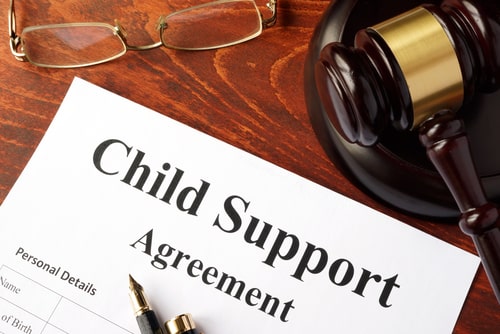Recent Blog Posts
How Can I Prepare Myself for a High Asset Divorce in Illinois?
 Divorce tends to not be a simple matter regardless of the specific circumstance. Hurt feelings, financial concerns, and disappointment are typical. When the couple has what is considered a high asset divorce, the complexities increase. The significance of how assets are valued and distributed can be life-changing for some.
Divorce tends to not be a simple matter regardless of the specific circumstance. Hurt feelings, financial concerns, and disappointment are typical. When the couple has what is considered a high asset divorce, the complexities increase. The significance of how assets are valued and distributed can be life-changing for some.
In some cases, both spouses are the owners of large companies, and dividing these can be very complicated. Sometimes, a couple’s wealth is the result of one spouse having an extremely lucrative and high-powered job, which was only made possible due to the other spouse staying home to take care of their family and household maintenance and therefore not earning their own salary. Whatever the reason, considering divorce under such conditions can be confusing and stressful. A Kane County, IL, high asset divorce lawyer can help you sort through the confusion and advocate fiercely for your rights.
Is Legal Separation a Good Option in Illinois?
 Fighting is a normal part of marriage. Generally, in a healthy marriage, the spouses can take some time to process their anger, and then figure out together how to move beyond the argument and forgive each other. For some couples, the fighting never ends. People who find themselves constantly fighting at home might want to stop it from happening, and one way to do that is to end the marriage. If you and your spouse are no longer happy in your marriage but you are not yet ready for divorce, a Wheaton, IL divorce lawyer can explain what happens in a legal separation and see if it might be a good option for you.
Fighting is a normal part of marriage. Generally, in a healthy marriage, the spouses can take some time to process their anger, and then figure out together how to move beyond the argument and forgive each other. For some couples, the fighting never ends. People who find themselves constantly fighting at home might want to stop it from happening, and one way to do that is to end the marriage. If you and your spouse are no longer happy in your marriage but you are not yet ready for divorce, a Wheaton, IL divorce lawyer can explain what happens in a legal separation and see if it might be a good option for you.
Why Choose Legal Separation Over Divorce?
Some people have the mistaken idea that legal separation just means one of the spouses moves out. In truth, it is very similar to divorce. Couples who are legally separated remain married but can maintain completely separate lives. Much like divorce, legal separation also requires that the spouses undergo a legal process to figure out how their future finances and parenting will look once they are no longer living together as a married couple.
How Do I Get an Uncontested Divorce in Illinois?
 Divorce can be a complicated process. It can be hard any time a relationship ends. It can be harder if the relationship is a deep commitment rather than something casual. If the relationship involves shared assets and perhaps children, the challenges the couple must face keep increasing. However, this does not mean that all people ending their marriage need to feel like sworn enemies interested in a zero-sum game who simply want their spouse to lose out. In fact, numerous couples find that they can productively and satisfactorily end their marriage through something known as an uncontested divorce. If you and your spouse can carry out productive communication and appreciate each other’s needs, a Kane County, IL, an uncontested divorce attorney can help you decide whether this is a good option for you.
Divorce can be a complicated process. It can be hard any time a relationship ends. It can be harder if the relationship is a deep commitment rather than something casual. If the relationship involves shared assets and perhaps children, the challenges the couple must face keep increasing. However, this does not mean that all people ending their marriage need to feel like sworn enemies interested in a zero-sum game who simply want their spouse to lose out. In fact, numerous couples find that they can productively and satisfactorily end their marriage through something known as an uncontested divorce. If you and your spouse can carry out productive communication and appreciate each other’s needs, a Kane County, IL, an uncontested divorce attorney can help you decide whether this is a good option for you.
What Makes Uncontested Divorce Different?
Some couples can agree on how their futures should look, even if those futures are not together. They need to ultimately be able to file for uncontested divorce. The main condition for this is that the couple can agree on every single one of the necessary aspects of any typical divorce. These aspects include:
My Ex Stopped Paying Child Support. Is There Anything I Can Do?
 When a couple goes through a divorce, the spouses need to reach a settlement that will describe what they will need to do once the marriage is legally over. The settlement will include how any marital property and other assets will be divided, if either spouse will need to make spousal support payments, and what will happen with their retirement funds. If they have children, they will also need to draw up a parenting plan that will detail how they will divide parental rights and parental responsibilities. These agreements serve as an outline for the spouses to follow so that things are not left to doubt. If either ex-spouse fails to fulfill any of their responsibilities, it can have serious consequences for the other spouse. If you are in such a situation, an experienced DuPage County, IL, divorce lawyer can offer you guidance and help you navigate your options.
When a couple goes through a divorce, the spouses need to reach a settlement that will describe what they will need to do once the marriage is legally over. The settlement will include how any marital property and other assets will be divided, if either spouse will need to make spousal support payments, and what will happen with their retirement funds. If they have children, they will also need to draw up a parenting plan that will detail how they will divide parental rights and parental responsibilities. These agreements serve as an outline for the spouses to follow so that things are not left to doubt. If either ex-spouse fails to fulfill any of their responsibilities, it can have serious consequences for the other spouse. If you are in such a situation, an experienced DuPage County, IL, divorce lawyer can offer you guidance and help you navigate your options.
What if Conditions Change?
The State of Illinois has a list of issues that need to be settled in order for a divorce to be finalized. Each ex-spouse can then refer to their settlement to know exactly what is expected of them and exactly what they can expect from the other. This makes it easier for them to make financial plans, know what sort of housing they’ll need (based on how often their child will sleep at their home), and have a clear understanding of the time commitment they can offer to their jobs (based on when they will need to be responsible for picking up or dropping off their child at school).
Can I Increase My Parenting Time in Illinois?
 When parents end their marriage, their divorce settlement needs to include a parenting plan that covers several topics: Where will their children live? Who will pay child support? Which parent will be able to make which decisions for their child? One of the most difficult topics for divorcing parents to settle is parenting time. If you are unhappy with the parenting time arrangement from your divorce, a knowledgeable Kane County, IL, divorce lawyer can explain your options and help you figure out how to proceed.
When parents end their marriage, their divorce settlement needs to include a parenting plan that covers several topics: Where will their children live? Who will pay child support? Which parent will be able to make which decisions for their child? One of the most difficult topics for divorcing parents to settle is parenting time. If you are unhappy with the parenting time arrangement from your divorce, a knowledgeable Kane County, IL, divorce lawyer can explain your options and help you figure out how to proceed.
How Is Parenting Time Decided?
The term parenting time, otherwise known as custody or visitation, describes the amount of time a child is with either of their parents. In most cases, the division of parental responsibilities in Illinois divorce settlements allows for both parents to have parenting time. The specifics of exactly how much time each parent gets is decided based on several factors, including:
What Should I Know About High-Asset Divorce?
 Even though all people are different and unique, divorce is generally a difficult process to go through, regardless of your background and circumstances. Figuring out new arrangements like alimony, how you will divide parental responsibilities, who will keep the family home, and what will happen to any retirement funds either of you might have can be complicated and frustrating for anyone. When you and your spouse are a high-asset couple, there are aspects to the divorce settlement that can be even harder to settle. Suppose you and your spouse have considerable assets and are concerned about how they will be affected by a divorce. In that case, a knowledgeable lawyer with experience handling similar cases can guide you through this process and advocate for your rights and interests.
Even though all people are different and unique, divorce is generally a difficult process to go through, regardless of your background and circumstances. Figuring out new arrangements like alimony, how you will divide parental responsibilities, who will keep the family home, and what will happen to any retirement funds either of you might have can be complicated and frustrating for anyone. When you and your spouse are a high-asset couple, there are aspects to the divorce settlement that can be even harder to settle. Suppose you and your spouse have considerable assets and are concerned about how they will be affected by a divorce. In that case, a knowledgeable lawyer with experience handling similar cases can guide you through this process and advocate for your rights and interests.
What Is Considered a High-Asset Divorce?
The term high-asset divorce does not have an official definition, but it refers to people with considerable money, property, and other assets. A divorce is generally considered high-asset when at least one spouse has a million dollars. In some high-asset divorces, both spouses have these considerable sources at their disposal. In others, one spouse has vast assets, and the other does not, which can complicate the divorce settlement
Can I Settle My Divorce through Mediation?
 No two people are the same. We are all raised differently, come from different backgrounds, and have unique personalities. Similarly, no two marriages are the same. And that is why there is no one way to end a marriage that works for everyone. Some people find that they cannot communicate productively with their spouse and will need others to help them reach an agreement. Some people split with their spouse on good terms and can avoid fighting things out in court to reach a settlement. If you are considering divorce and are not sure which path is best for you, a DuPage County, IL, divorce attorney can explain your options and help you figure out how you want to move forward.
No two people are the same. We are all raised differently, come from different backgrounds, and have unique personalities. Similarly, no two marriages are the same. And that is why there is no one way to end a marriage that works for everyone. Some people find that they cannot communicate productively with their spouse and will need others to help them reach an agreement. Some people split with their spouse on good terms and can avoid fighting things out in court to reach a settlement. If you are considering divorce and are not sure which path is best for you, a DuPage County, IL, divorce attorney can explain your options and help you figure out how you want to move forward.
How Does Mediation Work?
In most cases, divorce mediation is a fairly straightforward process. The mediator is an unbiased outsider whose primary goal is to help both people leave feeling satisfied with the settlement. As such, both spouses generally think that they were given equal opportunities to voice their opinions and advocate for their interests. The spouses sit in separate rooms, and the mediator moves back and forth between both, asking questions, relaying answers, hearing each person’s concerns and considerations, and suggesting what they believe both spouses would consider reasonable compromises until a settlement is formulated. Just like in all other types of divorce, a settlement reached in mediation needs to include agreements about all the aspects of divorce, including:
Can I Get Legally Separated Instead of Divorced in Illinois?
 Many people who wish to end their marriage commonly consider divorce as their option. Others might not feel ready to take this major step, for a number of reasons. If your marriage is no longer working for you but the idea of divorce feels too extreme, at least for now, you might consider legal separation. A knowledgeable Kane County, IL legal separation attorney can explain what is involved and help you figure out the best path forward for you.
Many people who wish to end their marriage commonly consider divorce as their option. Others might not feel ready to take this major step, for a number of reasons. If your marriage is no longer working for you but the idea of divorce feels too extreme, at least for now, you might consider legal separation. A knowledgeable Kane County, IL legal separation attorney can explain what is involved and help you figure out the best path forward for you.
Why Choose Legal Separation?
No two people are the same. People have their own unique personalities, backgrounds, beliefs, and experiences that shape them into unique individuals. That is why every couple has unique dynamics and why different solutions work for different couples. While some couples who no longer wish to stay together will find divorce to be the most obvious solution, others might seek another option for several reasons, including:
Can I Have an Uncontested Divorce in Illinois?
 Divorce can be one of the most difficult processes for people to go through. Like any breakup, you can feel heartbroken and sad, but on top of it, you need to go through legal proceedings to painstakingly divide all of the assets you amassed together. If you are parents, you need to draft a plan for how you will both continue raising your children, but separately. You might need to work out arrangements for retirement, health insurance, student loans, and other issues that you would have handled together had you remained married.
Divorce can be one of the most difficult processes for people to go through. Like any breakup, you can feel heartbroken and sad, but on top of it, you need to go through legal proceedings to painstakingly divide all of the assets you amassed together. If you are parents, you need to draft a plan for how you will both continue raising your children, but separately. You might need to work out arrangements for retirement, health insurance, student loans, and other issues that you would have handled together had you remained married.
However, some divorcing couples are able to end their marriage amicably. Just because the spouses no longer want to stay married doesn’t mean they need to act like enemies and make it impossible to reach agreements with each other. If you and your future ex-spouse can communicate productively, a knowledgeable Dupage County, IL, divorce lawyer can talk to you about whether an uncontested divorce might make sense for your situation.
Can My Ex Make Me Change My Holiday Plans with Our Kids?
 The holidays are a time when families get together and forge cherished memories that can last a lifetime. But when the family’s parents have decided to get a divorce, things can become more complicated. If you are a divorced parent whose ex-spouse wants to make you change your holiday plans with your children, a knowledgeable Kane County, IL divorce lawyer can help you navigate this sensitive situation.
The holidays are a time when families get together and forge cherished memories that can last a lifetime. But when the family’s parents have decided to get a divorce, things can become more complicated. If you are a divorced parent whose ex-spouse wants to make you change your holiday plans with your children, a knowledgeable Kane County, IL divorce lawyer can help you navigate this sensitive situation.
Why Might Holiday Plans Be a Source of Contention?
In some families with divorced parents, the parents might have different religious affiliations. This can make holidays difficult due to the parents’ differing assumptions about how a holiday should be spent. In some families, divorced parents might live very different lifestyles. If the parent with much more financial stability gets to have the kids for a holiday, the parents who live a more modest lifestyle might worry that the children will be given gifts and experiences that they would not be able to provide them with. In some families, one of the divorced parents might start dating someone and want to introduce that person to their children. This could make the other parent uncomfortable, knowing the children will be exposed to another adult whom they do not know themselves. This person could make an impression on the children or introduce them to religious practices that they do not want their children to adopt.












